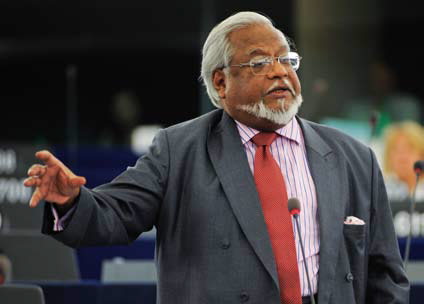
China’s success poses not a threat but an opportunity for the EU and its member states, argues Nirj Deva
We are standing at the precipice of history, staring into the abyss of the unknown as the world around us changes. Collectively, we face the critical challenge of our time in how we will react to an increasingly multi-polar world, in which large and small powers jockey to influence the course of global events in the 21st century.

First and foremost among them will be China, whose rapid rise as an economic, and budding military power has sparked suggestions that China constitutes a threat that must be either contained or countered, if so called “western supremacy” is to be preserved. This general apprehension takes the view that China stands as a totalitarian and unilateral power that in days to come will utilise its economic strength to bully for political and military leverage, confronting the main players on the international stage; a fear that has only been exacerbated by the recent economic crisis affecting the west. In the stark contrast posed by China’s dramatic growth it is unsurprising that international institutions have felt somewhat intimidated. I believe that these fears are misplaced.
China’s success stands not as our challenge but as our opportunity; an opportunity to be seized so that we in Europe can penetrate new markets, grasp new horizons and drive fresh wealth creation prospects. Every time China increases its gross domestic product by 50 per cent, as it did over the last five years, it presents us with this very opportunity to export high value, quality European goods. Is it any surprise that it is European luxury cars, like BMW and Rolls-Royce Bentley that captivate the emerging wealth of China?
Far from challenging the existing, post war, international order, as some fear, the China of the 21st century has been engaging, albeit slowly, with the global community. It is here that the EU must strive to help China cast off the traditional isolationist policies of the past and encourage a process of engagement. Today, China stands as a full member of 50 intergovernmental and 1000 international, non-governmental organisations. It has even founded one of its own, the Shanghai cooperation council.
In a decade, China has transformed itself from a sceptic of liberalised and preferential trade into being one of the strongest proponents of a rule based trading system. When Beijing demands recognition as a “market economy” this is truly the final affirmation that China is a fully fledged member of the world’s trading system,.
According to a recent white paper released by the state council of China, the country’s twin priorities are territorial integrity and economic growth, while committing basic safeguards for ensuring economic and social development. This is a China that the EU and international institutions can engage with. However, in doing so the larger global community must realize that dealing with China means matching responsibilities and rights. It means that while acknowledging China as an emerging power we must recognise that it is a unified nation over 2000 years in the making and the heir to a rich and proud heritage. It means treating them with the respect this accords and not resorting to condescension. Concurrently, the EU must strive to encourage China to take an active role in the reformation and renewal of our international systems, formulating international rules and addressing global issues. With the EU’s already strong trade relations with China, I believe that we have a tremendous role to play in achieving this global stability.
Nirj Deva is a viice chair of parliament’s development committee and chair of the EU China friendship group
Source: The Parliament magazine